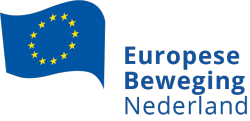EBN member Joost van Iersel published the following analysis of the Dutch EU Presidency for the European Economic and Social Committee.
During the Dutch Presidency nearly all150 meetings of working groups and Informal Councils will take place in the Maritime Museum in Amsterdam. In the glorious 17th century, the headquarters of the Amsterdam Admiralty were located here.
The place is symbolic of global thinking and the preservation of open borders. Since the fifties, this has also been the Dutch trademark in the EU. It was at the origin of Dutch economic prosperity and has remained so long after any real political influence on the international scene had vanished. Inherent specialist expertise and qualities in trading, transport and logistics are also specific features of the Dutch contribution to the EU. Interests of big commercial companies, financing, and international transport are characteristic in the overall picture. Another remarkable stronghold is the agricultural sector. Dutch agribusiness is highly productive, resulting in a very strong position for the sector in Europe and beyond.
Commercial traditions, however, have not hampered a rise in manufacturing, although to a lesser degree than for instance in Germany, Italy or Sweden. Specialist expertise and a deeply felt need for continuous adjustment to changing international circumstances can only subsist, if they are sustained by a high standard of education.
In international rankings Dutch higher education makes generally scores very well. Surprisingly, in 2015 the Netherlands was ranked 5th in the World Competitiveness Ranking of the World Economic Forum. Unemployment is low by European standards. A very specific feature of the labour market is the very high number of self-employed without employees, about 12% of employed people. This phenomenon is largely the result of the flexibility of the labour market, and of the high penetration of ICT and creativity, leading to countless of start-ups and service providers.
So far, so good. But this rosy picture also has its dark sides that correspond to similar negative developments across Europe. Redundancies of large groups of workers, notably older employees with lower middle incomes which is largely a consequence of the rapid development of new production techniques in manufacturing and services, seem unstoppable. This phenomenon, linked to the recent deep financial and economic crisis, has promoted a climate of insecurity. Over the last few years economic insecurity has been the main worry of large parts of the Dutch population. This worry is now even surpassed by the feeling of insecurity and vulnerability among parts of the population due to the influx of refugees/migrants.
Europe is in full transition. In this critical period the government sees as its main task to keep the wheels turning. Due to the complicated political landscape – a de facto minority government, composed of unusual partners of liberals and social-democrats, (too) many political parties, and a strong and vociferous eurosceptical party (Wilders) – the governmental approach is low key. Maybe due to the Presidency Ministers have been highlighting the benefits of European integration. This is, by the way, in agreement with public opinion, which, according to regular enquiries, has on average a positive attitude towards the EU. It is noteworthy that the President of the euro area, the Dutch finance Minister, Mr Dijsselbloem, enjoys considerable popularity. The government says that it does not agree with deepening integration, but in practice it supports all proposals that envisage reinforced surveillance and better functioning of the euro area. It has an outspoken view on ‘less but better legislation’ in the Internal market and on free competition on a level playing field.
Despite Euroscepticism traditional viewpoints look like to regain ground in Dutch politics, although the picture remains confusing. Uncertainty prevails due to public opinion resisting the expected increase in the influx of refugees. This is a dominating theme. Directly related areas include strengthening the outer borders of the EU, the maintenance of Schengen – the government is firmly in favour – and possibly common military commitments in the Middle East. The government is in favour of closer defence cooperation as exists already with Germany and Belgium. The Presidency will pay specific attention to three main issues that are (rightly) considered as main challenges for the Union as a whole: the EU Urban Agenda, digitilisation and Smart industry (= 4.0), and Higher Education. Halfway through the Presidency, there will be a (consultative) referendum on the association treaty between the EU and Ukraine. As always in case of a referendum, the outcome is unpredictable, if not arbitrary, which means a headache for the Presidency, and possibly damaging political consequences. Otherwise it is wait and see, for circumstances are unstable anyway, consider the refugee issue, terrorism, the Middle East, Ukraine and Russia, the Brexit… The Netherlands is a sub-top European player with keen interests in European integration and stability, and with a solid and active, but meanwhile somewhat neglected, tradition in Europe’s policymaking. Given the increased uncertainties one may hope that the government puts its best foot forward.
